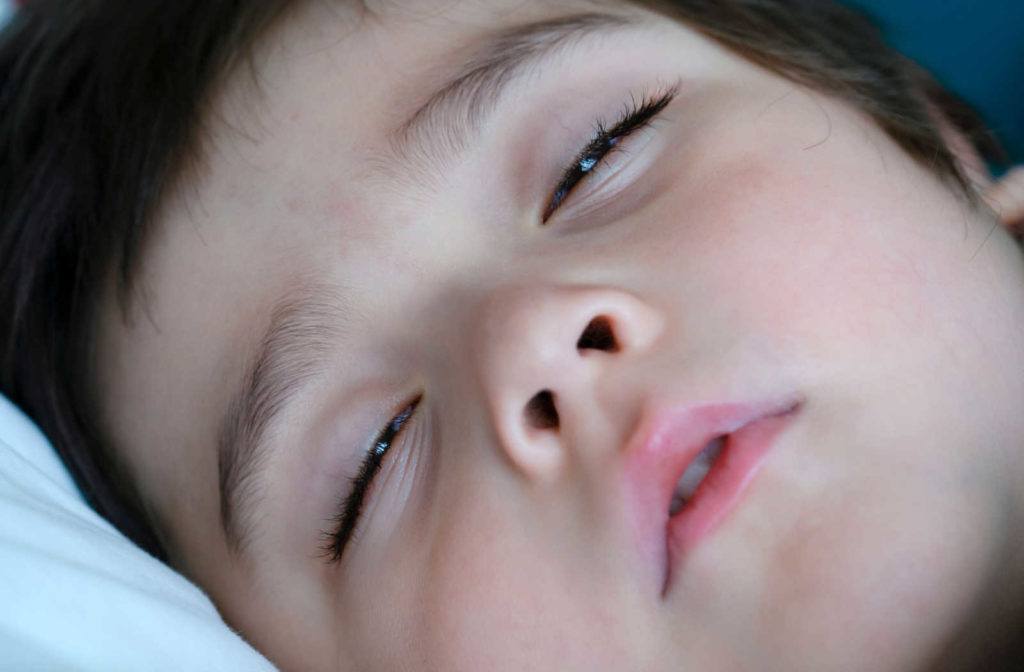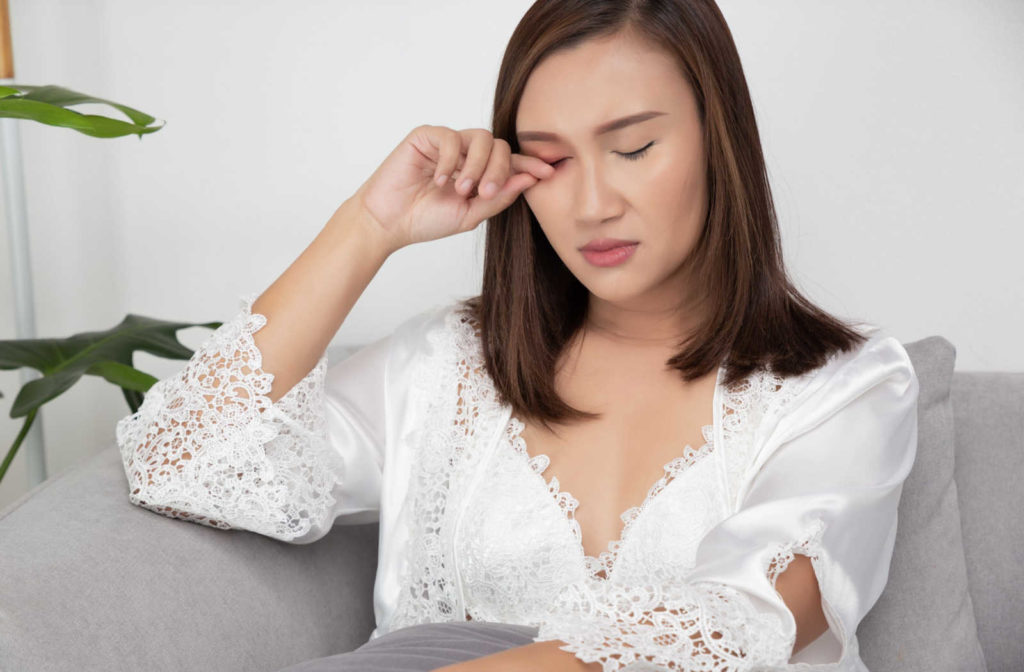Having dry eyes could result from several things, such as medications, other health conditions, or even allergies. Or you may be unlucky enough to wake up every morning with that uncomfortable gritty feeling for no apparent reason.
In most cases, your optometrists will likely perform an eye examination to confirm the root of your dry eyes, so they can recommend a suitable treatment plan. This article explores waking up with dry eyes and its potential causes and treatments.
What Is Dry Eye?
Dry Eye results when your tear system fails to protect your eye surface from desiccation or drying stresses in our everyday life like our environment, health conditions, and medications. Essentially, having the condition is to have chronically dry eyes. Inadequate tear production or premature tear evaporation are the two major causes of dry eye—sometimes, both are to blame. Effectively the system is derailed and we need to do a factory reset to get back to its normal protective function.
Symptoms of Dry Eye
Depending on which type of dry eye you’re dealing with, your symptoms may vary slightly. These symptoms are typically what the treatment revolves around.
These symptoms include:
- Intermittent blurry vision (this is the number one symptom of dry eye)
- Red or bloodshot eyes
- Feeling like there is something in your eye
- Itchy eyes
- Sensitivity to light
- Mucus discharge
- Watery eyes (the body’s reaction to the irritation)
- Inability or difficulty in wearing contact lenses
- Tired eyes
- Struggling with low light and nighttime vision
Causes of Dry Eye
Many factors contribute to developing dry eyes. But there are two significant root causes at play.
Decreased Tear Production
A few things can happen when your body doesn’t produce enough tears. First, your eyes will likely not be lubricated adequately. This can cause issues with abrasions or scrapes on the cornea. The other issue will be a lack of protection from germs and contaminants.
Common factors which contribute to inadequate tear production include:
- Age
- Underlying medical conditions like Sjorgen’s syndrome, autoimmune disorders, vitamin A deficiency, or allergic eye disease.
- Medications including antihistamines, antidepressants, acne control products, birth control, or decongestants.
Premature Tear Evaporation
Even if your body produces enough tears, you’ll run into more dry eye symptoms if they evaporate too quickly. One of the three components in a proper tear mixture is oil. This is a common culprit of premature tear evaporation.
Common factors which contribute to premature tear evaporation include:
- Eye allergies
- Meibomian gland dysfunction (MGD)
- Inadequate blinking
- Eye drop preservatives
- Environmental factors like wind, dry air, or smoke
Why are My Eyes Dry When I Wake Up?
It’s already tough for some people to roll out of bed in the morning. This can only be made worse when your eyes burn as soon as you open them, and it feels like tiny pieces of gravel are in them.
Like any other form of dry eye, inadequate tear production or premature evaporation are the likely causes. But there is a particular condition called nocturnal lagophthalmos that is specifically associated with getting dry eyes overnight.
Nocturnal Lagophthalmos
When most people close their eyelids, they gently press together to protect the eye. But people dealing with nocturnal lagophthalmos cannot close their eyelids completely while asleep.
Scientists are unsure of what exactly causes this condition. Still, weakness in the seventh cranial nerve (facial nerve) is one commonly accepted theory.
Causes for this nerve weakness include:
- Trauma to the skull or jaw
- Cerebellar artery damage (this artery provides blood for the facial nerve)
- Bell’s palsy, which causes facial muscle weakness

Dealing With Dry Eyes in the Morning
Most treatments for dealing with dry eyes when you wake up will be the same as any other treatment. For example, the optometrist may prescribe an over-the-counter (OTC) eye drop or a prescription one. These could be anything from a lubricating eye drop to an anti-inflammatory eye drop like cyclosporine.
Other potential treatments could be intense pulsed light therapy or meibomian gland expression for more extreme or troublesome cases.
Home Treatment for Dry Eyes
If your morning symptoms aren’t too bad, you could try some home treatment ideas before visiting the optometrist. This is especially true for individuals who only occasionally wake up with dry eyes.
These treatment ideas include:
- Warm compress for a few minutes before going to sleep and after waking up
- Running a humidifier in your room while you sleep
- Thoroughly washing eyelids
- Staying hydrated throughout the day and drinking a glass of water when you wake up
- Using an air filtration system, especially where you sleep
- OTC lubricating eye drops (preservative free)
Talking to Someone About My Dry Eyes
If you’ve tried some of the home remedies above and you’re still dealing with irritated, dry eyes, give us a call. The staff at In Focus Eyecare are knowledgeable and here to support your eye health.
Once you’ve sat down with one of our experienced optometrists and they’ve examined your eyes, they can recommend the best treatment path for dealing with your dry eyes.





